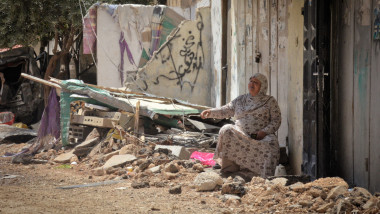The new status quo after Israel’s assault on the northern West Bank
Israel’s ongoing military onslaught on the northern West Bank cities of Jenin, Tulkarem, and Tubas has now entered its third day. The Israeli army has made a point of describing it as the largest-scale invasion of the West Bank since Operation Defensive Shield in 2002, a message largely meant for its Israeli audience, and perhaps also meant to terrorize Palestinians as a form of psychological warfare — Israel’s Foreign Minister, Israel Katz, said that Israel should deal with the West Bank the same way it has been dealing with Gaza, including “temporarily evacuating” residents.
Since October 7, Israel ramped up its raids on the northern West Bank’s cities, especially in refugee camps that have served as havens for the resistance groups. The Israeli strategy was to preempt the further development of armed Palestinian activity in response to Gaza’s al-Aqsa Flood operation and to neutralize the West Bank as an additional front in the war on Gaza. While the West Bank as a whole was largely pacified, the northern West Bank remained an active battleground. Instead of being deterred, the resistance groups in Tulkarem, Jenin, and elsewhere increased their capabilities, especially in terms of manufacturing IEDs. Then armed resistance began to spread to rural parts of the northern West Bank, marking a pattern of growth in the presence of armed groups.
As Israel is expected to start winding down and reducing operations in Gaza, it is now attempting to expand operations to the West Bank in order to prolong the state of war as much as possible, given that Netanyahu’s interests align with the continuation of the scenario of attrition. If this is the case, that means the West Bank assault is only in its beginning stages; as Israeli forces withdraw from Gaza they will become freed up to step up pressure in the West Bank.
Regardless of whether the war on the West Bank is an extension of the war on Gaza, what is clear is that we have entered a new phase in Israel’s policy toward the West Bank. Even if the war in Gaza ends tomorrow, the West Bank will now become a new arena of escalation and annexationist settlement expansion for the foreseeable future. The old status quo of artificial stability has been shattered, and there’s no going back to how things were before. This is both to the benefit of Israel’s settlement ambitions, but also to its peril, as it risks a conflagration in the West Bank and the broader region.
